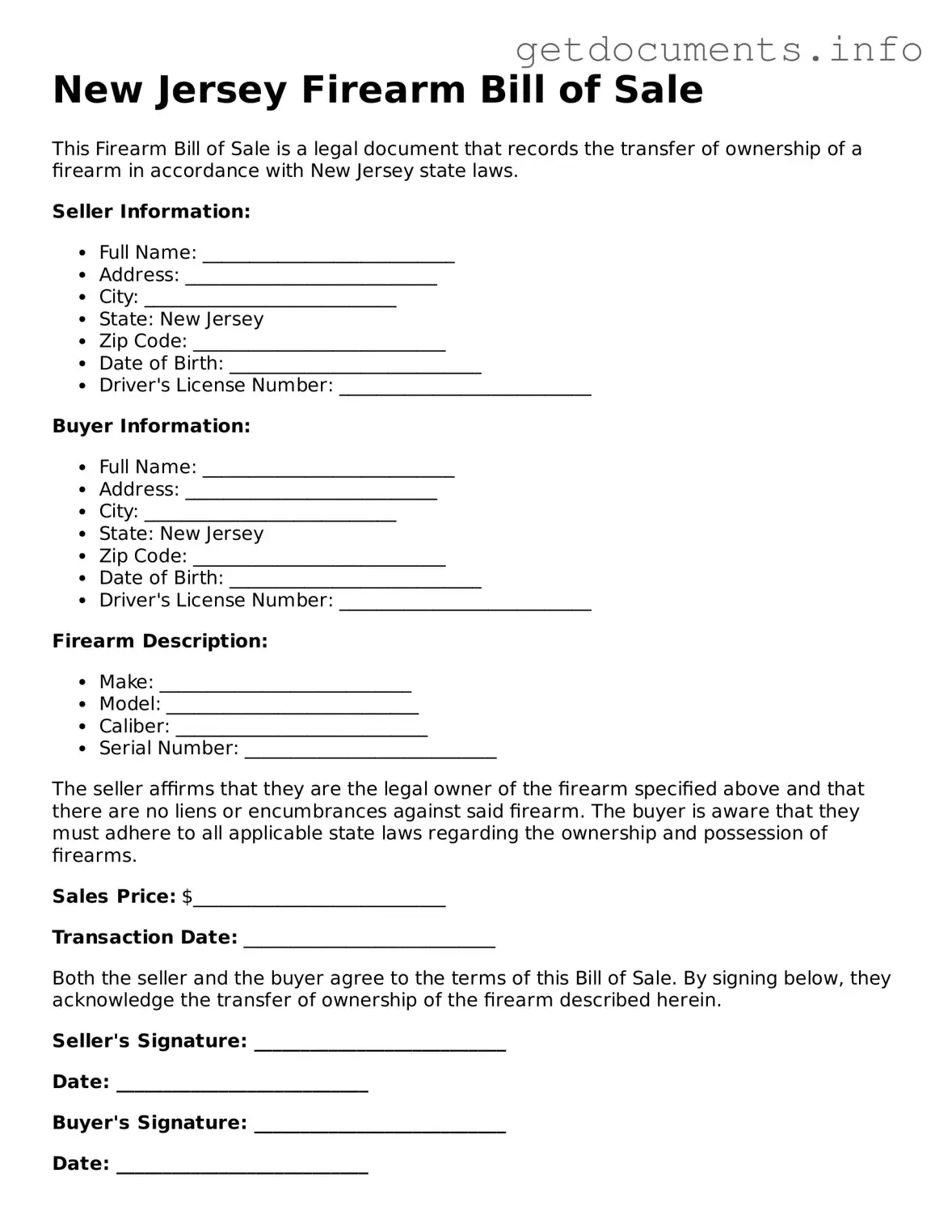Free Firearm Bill of Sale Template for New Jersey
The New Jersey Firearm Bill of Sale form is a legal document that records the transfer of ownership of a firearm from one individual to another. This form serves as proof of the transaction and includes essential details about the buyer, seller, and the firearm itself. Understanding how to properly fill out this form is crucial for ensuring compliance with state laws.
To get started, click the button below to access the form.
Access Firearm Bill of Sale Editor

Free Firearm Bill of Sale Template for New Jersey
Access Firearm Bill of Sale Editor
Got places to be? Complete the form fast
Fill out Firearm Bill of Sale online and avoid printing or scanning.
Access Firearm Bill of Sale Editor
or
⇩ PDF File
